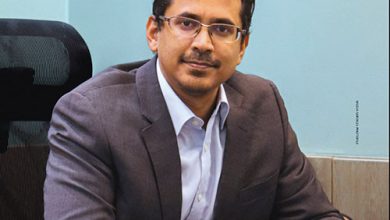EXECUTIVE HEALTH
LIFE BEGINS AT 60!
BY Dr. Sanjiva Wijesinha
A few of my colleagues are approaching their sixties this year so I thought it’s a good time to reflect on the phenomenon of ageing. What factors contribute to ageing gracefully and successfully?
We often look on those who have retired as ‘old people’ and use terms like ‘elderly’ or ‘senior citizens’ when referring to them. With this transformation comes an inevitable change in our perceptions and attitudes – it’s almost as if they’ve passed their expiry date.
And consequently, this pervasive attitude in society could affect how such people view themselves; it can preclude them from remaining involved and contributing to society.
I was interested to learn about the Japanese concept of kanreki. When the Japanese reach 60 after completing five cycles of the 12 sign zodiac, they approach a new beginning in their cycle of life. This is when they reflect on what to build on or leave behind, celebrating their achievements and forgetting past problems as they enter the next stage of life.
It is salutary to remember that ageing begins at birth. And the rate at which people age varies and chronological age is a poor indicator of one’s health.
Growing older is not the same as becoming unhealthy. One of the problems ageing patients have is that as they grow older, they’re likely to ignore warning signs of illness – they dismiss such warnings as being part and parcel of ageing. This can lead to a delay in diagnosing the cause of symptoms such as incontinence, breathlessness, tiredness and weight loss.
It is also important to be aware that ageing doesn’t inevitably lead to rapid physical and mental decline – many are those in the older age group who remain active and creative. Some famous people have produced their best works after they passed 60.
For instance, Michelangelo was appointed architect of St. Peter’s Basilica at the age of 71, Nelson Mandela served five years as President of South Africa from 76 while Rabindranath Tagore, Bertrand Russell and George Bernard Shaw were writing well into their 70s.
Lee Kuan Yew, the legendary English educated Prime Minister of Singapore, learnt Mandarin in his 80s! And today, Malaysia’s Dr. Mahathir Mohamad reigns supreme at the ripe young age of 93.
For those approaching the age of retirement, here are a few words of advice…
Take nutrition seriously because as one grows older, there’s a loss of muscle mass and bone strength. So maintaining an adequate intake of protein and calcium is important. Whether your protein comes in the form of meat or vegetables isn’t important as long as you have enough of it.
Stay active both physically and mentally. Regular exercise – like walking, swimming, spending time in the gym, doing physical work, or playing tennis or golf – is mandatory as is keeping the brain active. Reading, learning
a new language or skill, working on voluntary or commercial projects in your field of expertise… they ensure that the brain remains in fine fettle.
Retirement can lead to a fundamental change in our concept of who we are.
We take for granted how we’re perceived as a valued member of the workplace so losing this status suddenly can be very confusing. Stay in contact with former work colleagues, join new social organisations and reconnect with extended family – they will go a long way towards ensuring that you remain a valued and valuable member of society.






